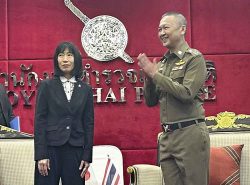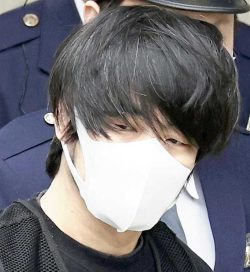Tokyo Univ. Hospital, National Medical Center Declined 16 Heart Donations Last Year; Staff, Bed Shortages Cited as Reasons

The National Cerebral and Cardiovascular Center
18:19 JST, June 11, 2024
The University of Tokyo Hospital declined 15 heart donations from brain-dead donors in 2023, and the National Cerebral and Cardiovascular Center in Suita, Osaka Prefecture, declined one, citing reasons such as insufficient manpower and hospital beds, a survey has found.
The survey, which was conducted by the Japanese Society for Heart Transplantation (JSHT), included responses from all 11 medical institutions that perform heart transplants.
An earlier survey of Japan’s three leading university hospitals for organ transplants — the University of Tokyo Hospital, Kyoto University Hospital and Tohoku University Hospital — conducted by the Japan Society for Transplantation (JST) had found the institutions declined 62 organ donations — of hearts, lungs and livers — from brain-dead donors last year. That survey followed a Jan. 1 report about the issue by The Yomiuri Shimbun.
The University of Tokyo Hospital in the JST survey reported that it had turned down 10 donations in 2023. The findings of the JSHT survey add an additional five donations to the total.
By including the case from the National Cerebral and Cardiovascular Center, the latest revelation marks the first time a medical institution other than the three leading university hospitals was found to have declined an organ donation.
The JSHT survey found that the reasons why the 16 donations were declined included a shortage of staff — surgeons, nurses and other surgery staff — and a shortage of beds in the intensive care units where patients are admitted after surgery.
According to the JSHT survey, the hearts that were declined by the two institutions were transplanted to lower priority patients at other facilities.
One reason why institutions decline organ donations is that amid an increase in the number of organ donations, organs are offered primarily to hospitals with long waiting lists of potential recipients.
Yoshiki Sawa, president of the JSHT, told The Yomiuri Shimbun the problem is that the number of patients waiting for organ transplants and the number of transplant surgeries is unevenly distributed among medical institutions. “The group would like to take measures to address this issue,” Sawa said.
According to a Yomiuri Shimbun tally based on publicly available data from the Japan Organ Transplant Network (JOT), of the 115 heart transplant surgeries performed in Japan last year, 32 were conducted at the National Cerebral and Cardiovascular Center, followed by 25 at the University of Tokyo Hospital.
Health, Labor and Welfare Minister Keizo Takemi said Tuesday he will have the JOT report on the number of times all facilities performing organ transplants declined donations and the reasons for their decisions. “Based on the report, we will work to promote medical transplantation,” Takemi said at a press conference.
Top Articles in Society
-

JAL, ANA Cancel Flights During 3-day Holiday Weekend due to Blizzard
-

Australian Woman Dies After Mishap on Ski Lift in Nagano Prefecture
-

Record-Breaking Snow Cripples Public Transport in Hokkaido; 7,000 People Stay Overnight at New Chitose Airport
-

Foreign Snowboarder in Serious Condition After Hanging in Midair from Chairlift in Nagano Prefecture
-

Man Infected with Measles May Have Come in Contact with Many People in Tokyo, Went to Store, Restaurant Around When Symptoms Emerged
JN ACCESS RANKING
-

Univ. in Japan, Tokyo-Based Startup to Develop Satellite for Disaster Prevention Measures, Bears
-

JAL, ANA Cancel Flights During 3-day Holiday Weekend due to Blizzard
-

Japan Institute to Use Domestic Commercial Optical Lattice Clock to Set Japan Standard Time
-

China Confirmed to Be Operating Drilling Vessel Near Japan-China Median Line
-

China Eyes Rare Earth Foothold in Malaysia to Maintain Dominance, Counter Japan, U.S.


















